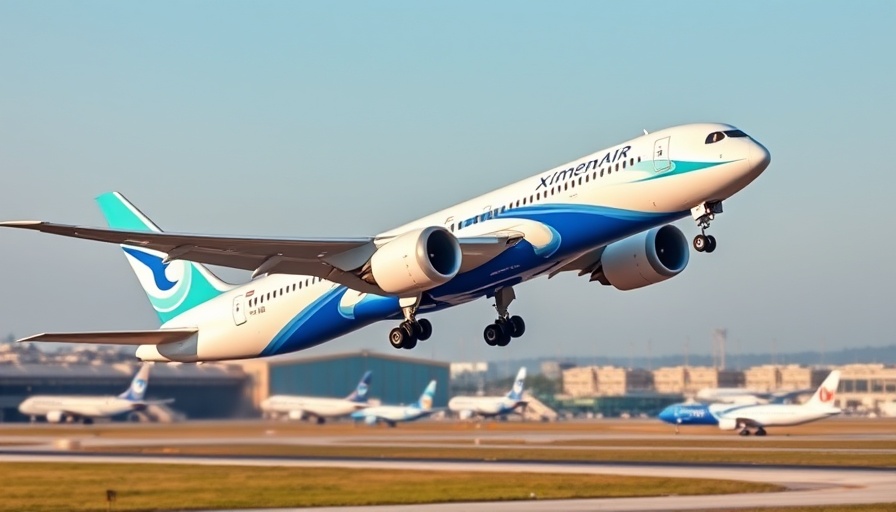
A Potential Turnaround: Boeing's Future in China
As Boeing navigates the tumultuous waters of the aerospace market, a potential mega-deal with China looms on the horizon, which could significantly bolster its prospects. According to reports, discussions are underway for China to purchase as many as 500 aircraft from Boeing, marking a renewed interest after an extensive hiatus from the Chinese market.
A Historical Perspective on Boeing's Challenges
Boeing has faced several setbacks that have challenged its position as a leading aircraft manufacturer. From the first two devastating crashes of the 737 MAX, leading to a prolonged suspension of its production, to the subsequent fallout during the pandemic, the company has seen a dramatic decline in orders from China, which was previously its biggest market. In 2017, a significant deal resulted in 300 aircraft sold, showing the potential profitability of the region. Now, as demand begins to recover, Boeing seeks to regain its foothold.
Why This Deal Matters to Boeing and the Industry
The potential deal comes at a critical time as the global air travel market is experiencing a resurgence. With projections indicating an average growth rate of four to five percent in air travel demand correlating with GDP growth, Chinese airlines are aspiring to expand their fleets to meet this demand. Boeing's renewed presence could not only signify a recovery for the company but also amplify competition with Airbus, which has been steadily increasing its foothold in China with over 100 deliveries in recent years.
What This Deal Could Mean for Consumers
The ramifications of such a deal extend beyond just Boeing's bottom line. If the order goes forward, it can lead to better options for consumers as airlines modernize their fleets with more efficient and safer aircraft. The introduction of new technology in aircraft manufacturing may also enhance safety and efficiency across the board, ultimately benefiting passengers and airlines alike.
The Outlook: What Lies Ahead
As talks progress, the aviation industry will be watching closely. With competitors like Airbus also eyeing potential orders, this could lead to a dynamic shift in the market. Future predictions suggest that if Boeing successfully executes this agreement, it could signal a resurgence in the global aerospace sector, aligning with the expected surge in air travel post-pandemic.
In conclusion, the next steps in Boeing's discussions with China could reshape the future of aviation and could signal the renaissance of an industry long affected by challenges. Staying informed about these developments can provide valuable insights for stakeholders across the aerospace and defense spectrum.
 Add Row
Add Row  Add
Add 




Write A Comment